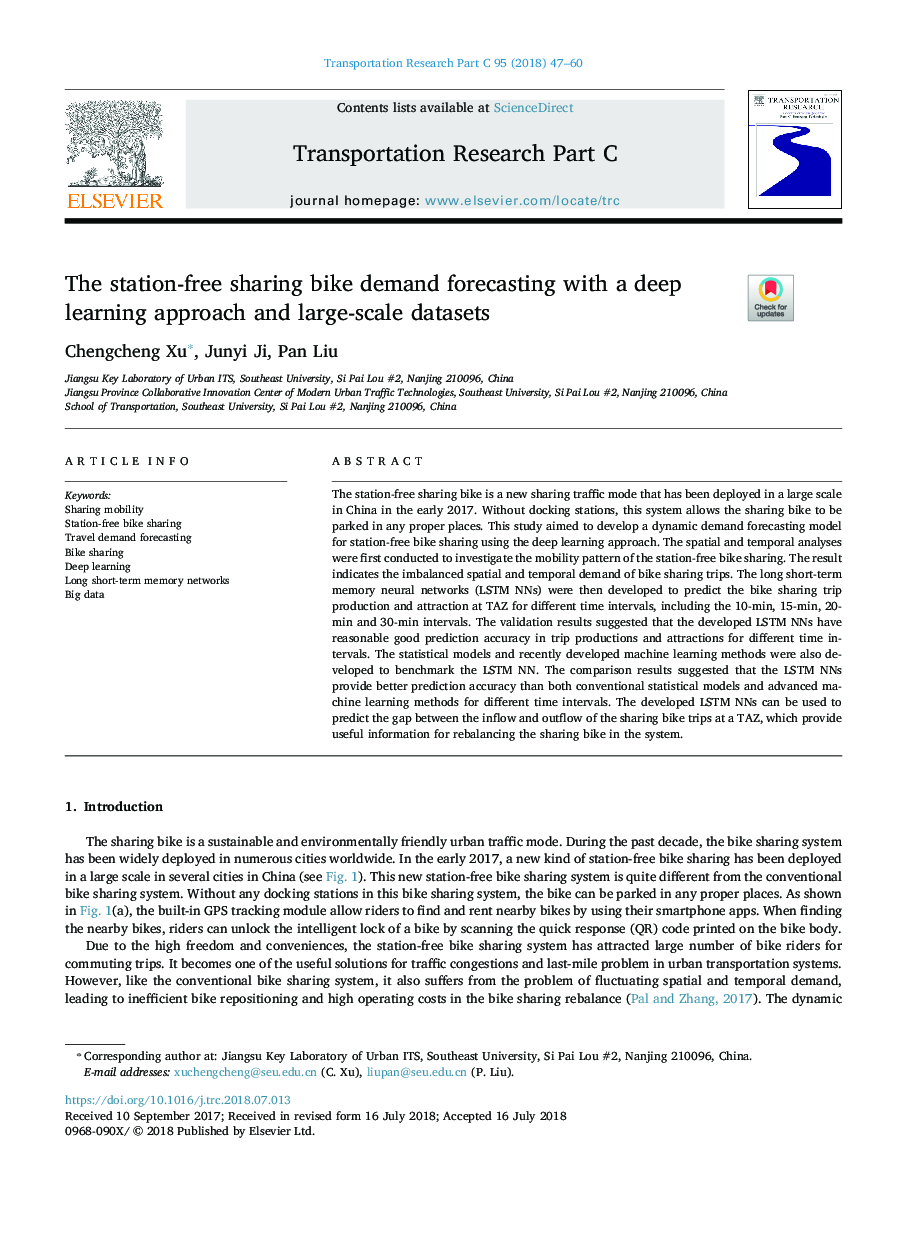| Article ID | Journal | Published Year | Pages | File Type |
|---|---|---|---|---|
| 6935639 | Transportation Research Part C: Emerging Technologies | 2018 | 14 Pages |
Abstract
The station-free sharing bike is a new sharing traffic mode that has been deployed in a large scale in China in the early 2017. Without docking stations, this system allows the sharing bike to be parked in any proper places. This study aimed to develop a dynamic demand forecasting model for station-free bike sharing using the deep learning approach. The spatial and temporal analyses were first conducted to investigate the mobility pattern of the station-free bike sharing. The result indicates the imbalanced spatial and temporal demand of bike sharing trips. The long short-term memory neural networks (LSTM NNs) were then developed to predict the bike sharing trip production and attraction at TAZ for different time intervals, including the 10-min, 15-min, 20-min and 30-min intervals. The validation results suggested that the developed LSTM NNs have reasonable good prediction accuracy in trip productions and attractions for different time intervals. The statistical models and recently developed machine learning methods were also developed to benchmark the LSTM NN. The comparison results suggested that the LSTM NNs provide better prediction accuracy than both conventional statistical models and advanced machine learning methods for different time intervals. The developed LSTM NNs can be used to predict the gap between the inflow and outflow of the sharing bike trips at a TAZ, which provide useful information for rebalancing the sharing bike in the system.
Related Topics
Physical Sciences and Engineering
Computer Science
Computer Science Applications
Authors
Chengcheng Xu, Junyi Ji, Pan Liu,
